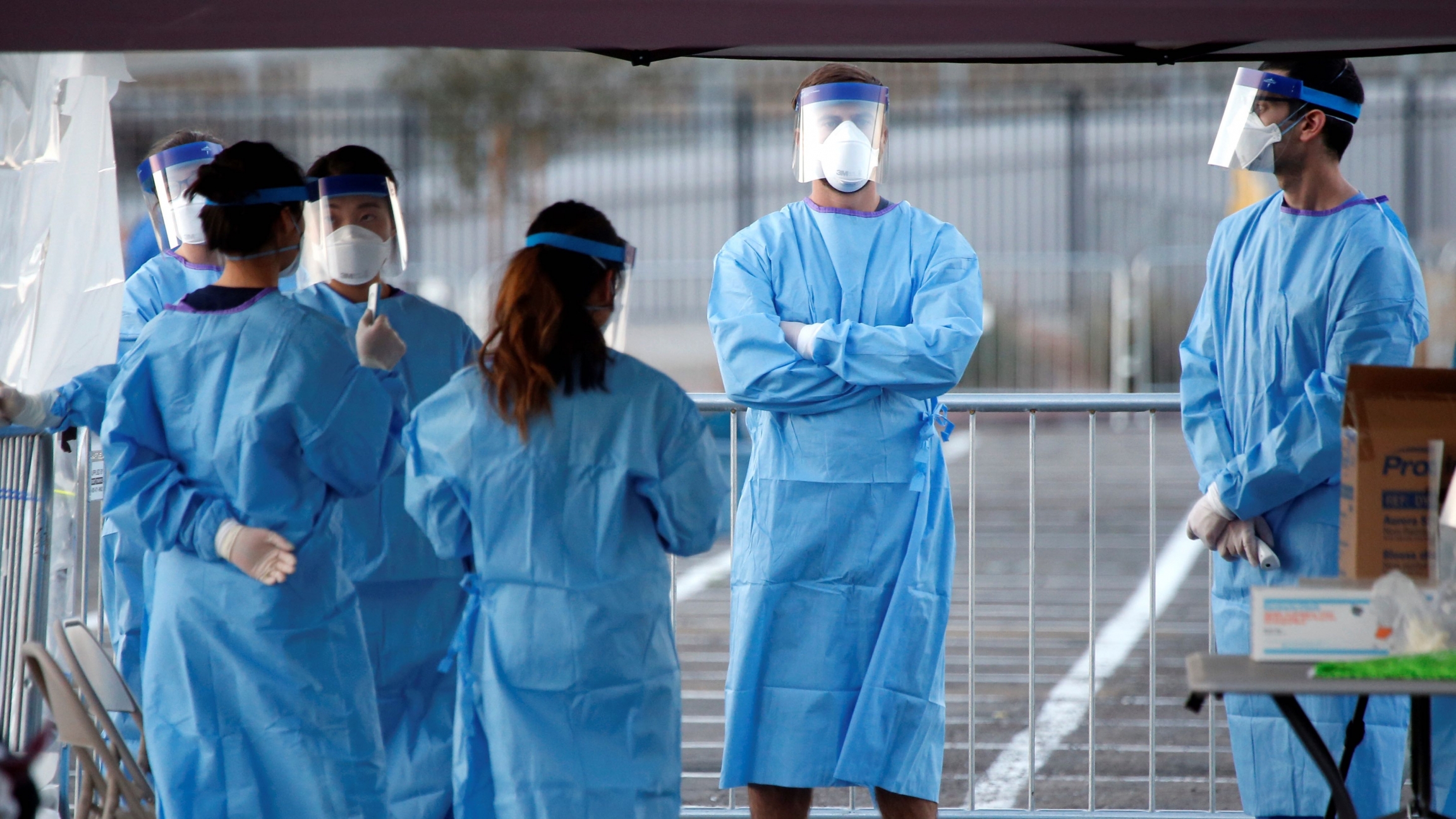
Medical interns, final year students to be roped in for COVID management
Under a new policy directive, medical interns can be used for Covid management, and MBBS students in the final year can help with tele-consultation and monitoring of mild cases; they, however, will be supervised by senior doctors or faculty members of their respective colleges

As the nation fights the onslaught of a virulent second wave of COVID-19, the Centre on Monday (April 3) announced its decision to rope in medical interns and final-year MBBS students to support the handling of coronavirus cases.
While interns can be used for COVID management, MBBS students in the final year can help with tele-consultation and monitoring of mild cases, said a statement from the Prime Minister’s Office (PMO). They, however, will be supervised by senior doctors or faculty members of their respective colleges.
Further, nurses with B.Sc or General Nursing & Midwife (GNM) qualifications can be roped in on COVID duty under supervision, the statement said.
To provide a boost to the medical fraternity that has been at the frontline of the pandemic, the Centre proposes to give the Prime Minister’s Distinguished Covid National Service Samman to medical personnel who complete 100 days of COVID duty. Further, such personnel will enjoy priority when they apply for government jobs.
NEET-PG entrance exam deferred
For the second time, the NEET-PG entrance exam has been postponed – it will now not be held before August 31. Once the new date is fixed, candidates will get at least a month’s notice.
The Centre, which has been severely criticised for its handling of the second wave of COVID, is now looking to contain the damage through various measures.
The nation has been gasping for oxygen, with cylinders going scarce. Several deaths have been reported in metros and smaller centres due to lack of oxygen availability in hospitals. On Monday, about 24 COVID patients died in Chamarajanagar district hospital in Karnataka due to an oxygen shortage. Last week, there were numerous deaths in New Delhi and Uttar Pradesh due to the same issue.
Measures to boost oxygen availability
The Centre has been taking policy measures to address the shortage. On Saturday, the Finance Ministry said oxygen concentrators received as gifts or ordered online from overseas would attract Goods and Services Tax (GST), but at a reduced rate of 12%, against the earlier 28%.
On Friday, the Centre notified changes to the foreign trade policy, allowing the import of oxygen concentrators for personal use. This can be done via e-commerce portals, post or courier. The changes would be valid till July 31, 2021.
Additionally, the Finance Ministry waived the requirement of permissions from any government body for customs clearance of COVID-related relief material imports facilitated by the External Affairs Ministry, and/or imported by the Indian Red Cross Society.
India’s vaccine policy has also drawn a lot of flak. The Centre’s earlier ‘vaccine diplomacy’, under which substantial consignments were given to other countries, and the inadequate manufacturing within the country, have been blamed for the current vaccine shortage. To address this, the Centre recently decided to exempt basics customs duty on the import of COVID vaccines.
Once the imported consignments get deployed and local manufacturing is augmented, the vaccination programme is expected to gather speed.

